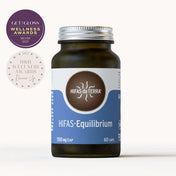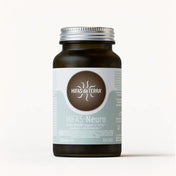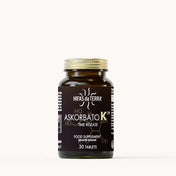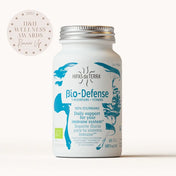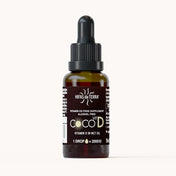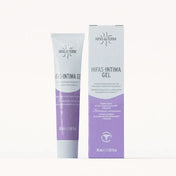Table of Contents
Anxiety can be a powerful force, making it difficult to focus on daily tasks and responsibilities. It can cloud our minds, making it hard to concentrate and achieve our goals. However, with the right tools and techniques, it is possible to turn anxiety into focus and harness our energy in a more productive way. In this blog post, we will explore the concept of transforming anxiety into focus and provide practical tips to help you tackle this challenge.
Understanding Anxiety and Its Impact on Focus
Anxiety is a normal human emotion that everyone experiences at some point in their lives. It can manifest in different forms, ranging from mild nervousness to intense fear and panic. Anxiety can also affect our ability to focus and concentrate. When we are anxious, our mind tends to race, and our thoughts can become chaotic and overwhelming. This can make it challenging to pay attention and stay focused on a particular task or goal.
Additionally, anxiety can also cause physical symptoms such as restlessness, muscle tension, and fatigue, which can further contribute to difficulty focusing. These physical symptoms can be distracting and make it challenging to concentrate on important tasks.
Furthermore, anxiety can lead to racing thoughts and a constant feeling of being overwhelmed, making it challenging to filter and process information effectively. It can also impact decision-making abilities, causing individuals to second-guess themselves and be indecisive.
The Connection Between Anxiety and Mindfulness
Mindfulness is a practice that involves being present in the moment and paying attention to our thoughts and emotions without judgment. It has been found to be an effective tool in managing anxiety and improving focus. By being mindful, we can learn to recognise our anxious thoughts and redirect our focus to the present moment. This can help us break the cycle of anxious thinking and improve our ability to concentrate.
Research has shown that mindfulness-based interventions can significantly reduce symptoms of anxiety and improve overall well-being. It can also be used as a preventive measure to reduce the risk of developing anxiety in the future. While it may not cure anxiety, mindfulness can be a powerful tool in managing and coping with anxiety symptoms.

Techniques to Turn Anxiety into Focus
Here are some practical techniques that can help you transform anxiety into focus:
Practice Deep Breathing
Deep breathing is a simple yet powerful technique that can help calm the mind and body. When we are anxious, our breath becomes shallow and rapid, further exacerbating the feeling of panic. By taking slow, deep breaths, we can activate the body's relaxation response and reduce anxiety. This, in turn, can help us focus better on the task at hand.
Use Visualisation Techniques
Visualisation involves mentally creating a peaceful and relaxing image to counteract anxious thoughts. For example, you can visualise yourself in a serene place, such as a beach or a peaceful garden. This can help reduce anxiety and improve focus by redirecting your thoughts to a more calming and pleasant image.
Set Manageable Goals
When we are anxious, we may feel overwhelmed and find it difficult to focus on a big task. To combat this, try breaking the task into smaller, manageable goals. This can help reduce anxiety and create a sense of accomplishment as you complete each goal. It also allows you to focus on one task at a time, making it more achievable and less overwhelming.
Create a Calming Environment
The environment we are in can greatly impact our anxiety levels and focus. If possible, try to create a calm and organized workspace, free from clutter and distractions. This can help reduce feelings of anxiety and promote a more focused mindset.
Incorporating Healthy Habits to Combat Anxiety

Apart from the techniques mentioned above, incorporating healthy habits into our daily routine can also play a significant role in reducing anxiety and improving focus. Here are a few examples:
Exercise Regularly
Physical exercise has been proven to have a positive impact on our mental health. It releases endorphins, which can boost our mood and reduce anxiety levels. Regular exercise can also improve our ability to concentrate and focus, making it an excellent tool in turning anxiety into focus.
Get Enough Sleep
Lack of sleep can significantly contribute to anxiety and make it difficult to focus during the day. Aim for 7-9 hours of quality sleep each night to give your body and mind the rest and recovery it needs. This can help reduce anxiety levels and improve your ability to concentrate.
Eat a Balanced Diet
The foods we eat can also impact our mental and emotional well-being. Avoid consuming excessive amounts of caffeine and sugary foods, as they can increase feelings of anxiousness. Instead, focus on incorporating a balanced diet rich in whole grains, fruits, and vegetables, which can provide the necessary nutrients for a healthy mind and body.
Try Stress-Reducing Activities
Engaging in activities that you enjoy and find relaxing can also help combat anxiety and improve focus. This can include hobbies such as painting, yoga, or listening to calming music. Find what works for you and make it a regular part of your routine.

Hifas Equilibrium
HIFAS-EQUILIBRIUM is a triad of synergetic adaptogenic mushrooms (REISHI, LION'S MANE and CORDYCEPS) that balances the body's immune, nervous and endocrine systems.
SEE PRODUCTS
Reishi Mushroom
Reishi ( Ganoderma lucidum), also known as the "mushroom of immortality," has been used in traditional Chinese medicine for centuries to promote calmness and relaxation. Studies have shown that Reishi can reduce anxiety, improve mood, and enhance cognitive function. It has also been found to have anti-inflammatory properties, which can help reduce physical symptoms of anxiety such as muscle tension and restlessness.
Lion's Mane Mushroom
Lion's Mane (Hericium erinaceus) is a unique mushroom that has been shown to have neuroprotective properties. It supports the production of nerve growth factor (NGF), which plays a crucial role in brain function and has been linked to improved cognitive function and mental clarity. Lion's Mane has also been found to have anti-inflammatory and antioxidant effects, making it a potential natural treatment for anxiety and other mental health conditions.
Cordyceps Mushroom
Cordyceps (Cordyceps sinensis) is a popular medicinal mushroom that has been shown to have adaptogenic properties, making it beneficial for managing anxiety. It has also been found to increase energy levels, enhance cognitive function, and improve brain circulation, which can contribute to improved focus and concentration.
Seek Professional Help if Needed
If your anxiety significantly affects your daily life and ability to focus, do not hesitate to seek help from a mental health professional. They can provide you with personalized strategies and support to manage your anxiety and improve your focus.
Conclusion
Learning how to turn anxiety into focus is a powerful skill that can greatly improve our effectiveness and well-being. By understanding anxiety and its impact on focus, practising mindfulness, and incorporating healthy habits and techniques, we can harness our anxious energy and channel it into a more productive mindset.

